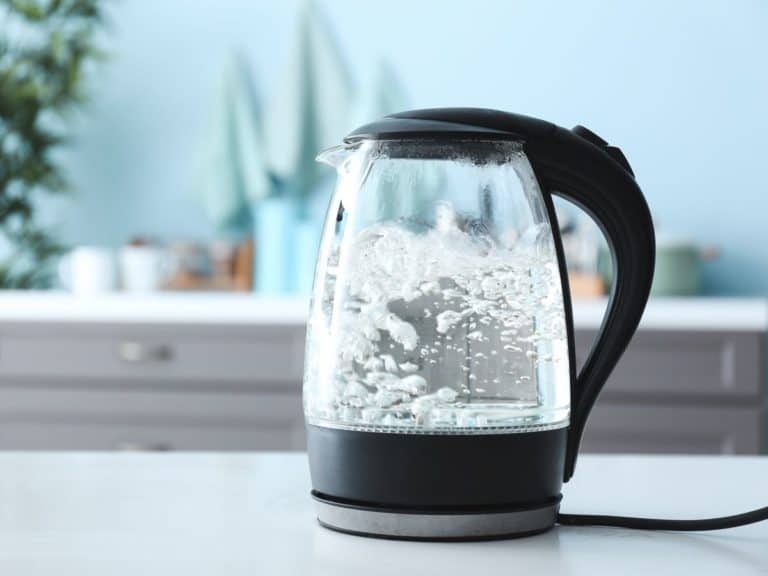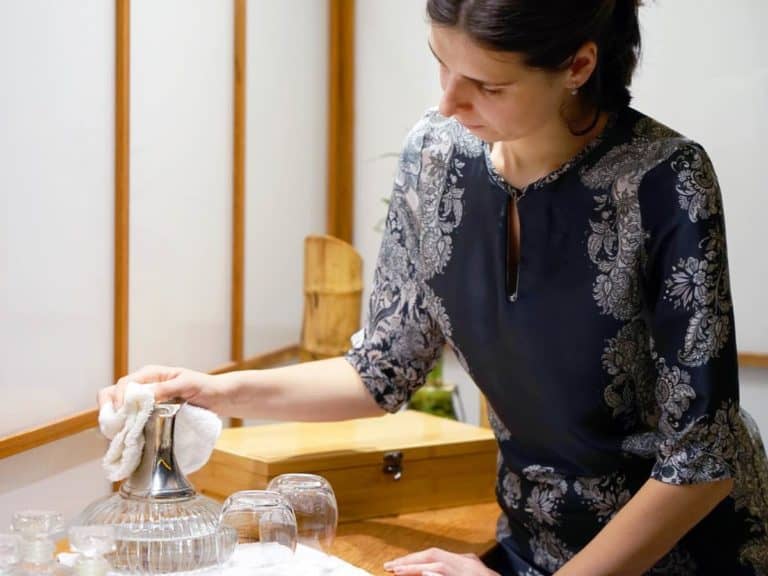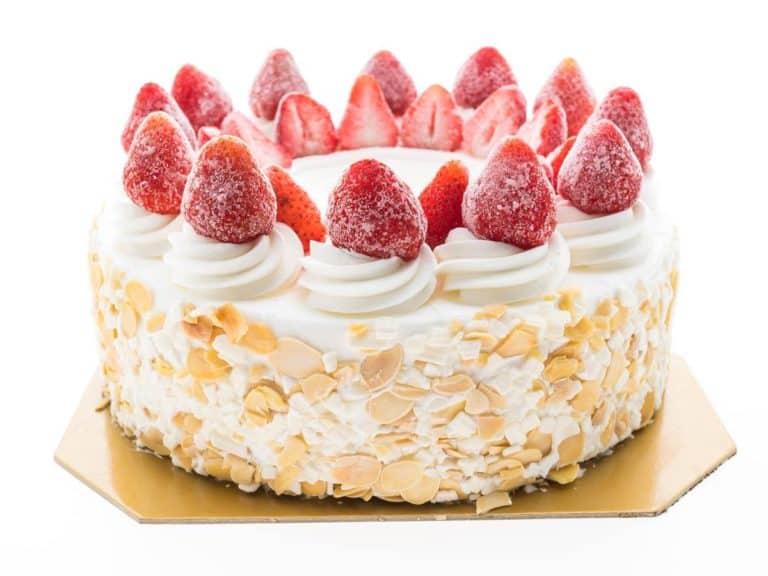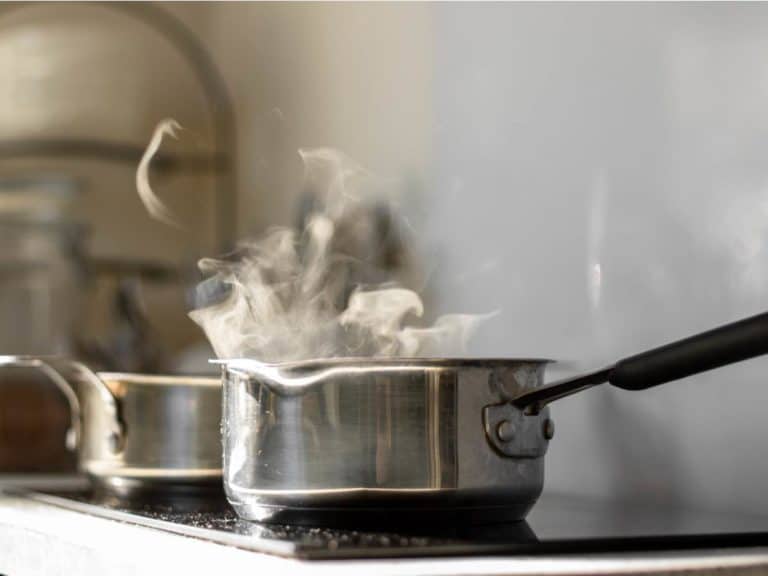Are Crystal Decanters Safe?
People are drawn to the beauty of crystal decanters, and the variety of shapes and patterns add a splash of style and class. However, these decanters have gotten a bad wrap over the years due to certain dangers with storing liquid. Let’s say you want to put your whiskey in a crystal decanter for a party, get-together, or anniversary toast — is it safe?
Crystal decanters are not safe if they contain lead. While most crystal decanters today are lead-free, they have historically contained lead, which can ooze into the liquid and cause health problems if consumed.
Below, I will explain how safe crystal decanters are, how to tell if a decanter is a lead crystal, and if all crystal decanters have lead. I will also give you several tips on identifying lead decanters and distinguishing them from plain glass decanters.
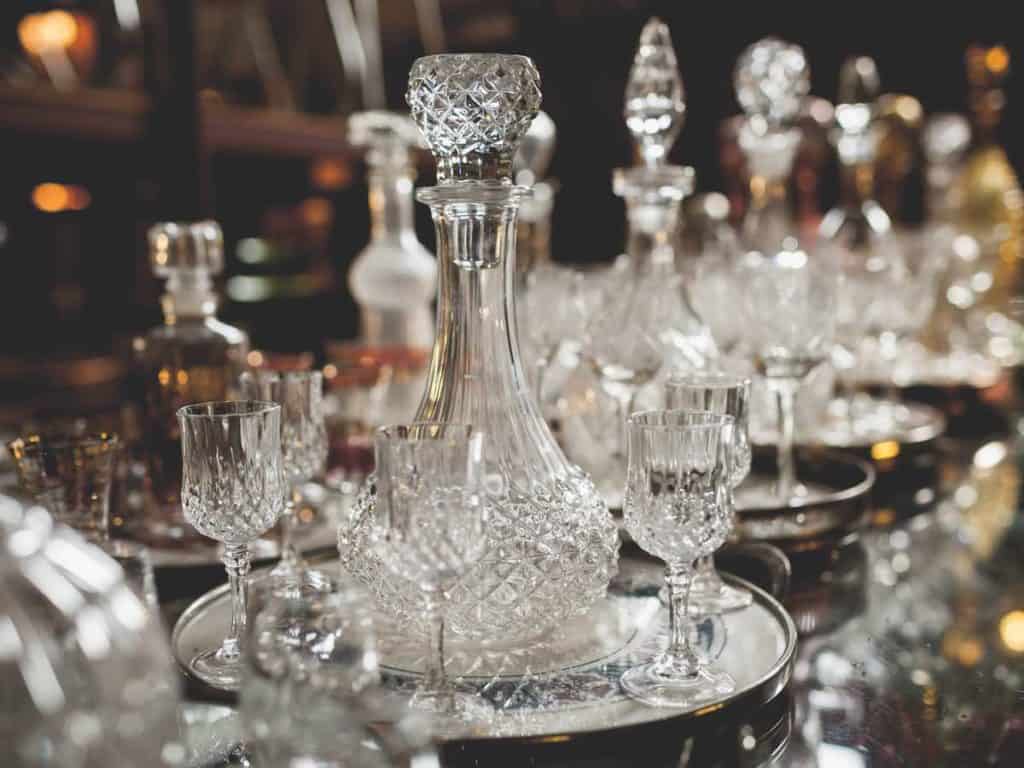
How Safe Are Lead Crystal Decanters?
Generally speaking, any glass with an addition of lead oxide(PbO) is called crystal.
Lead crystal decanters are not safe. Research has shown that liquids stored in a crystal decanter accumulate an alarming amount of lead over time. Thus, if crystal decanters are used daily, the lead can accumulate to toxic levels in the body.
In a detailed 1969 directive, the European Union(EU) clearly defined the different types of crystal and their lead content. Here is a table that further elaborates this information.
There is a significant risk of the amount of lead content from decanters that can make its way into your drink. The lead then deposits in your blood and bones, resulting in illnesses such as kidney disease, hyperthyroidism, and paralysis.
Keep in mind that the Centers for Disease Control and Prevention (CDC) has already reported that lead in pregnant women can expose the unborn baby to serious health issues.
Besides, statistics from the IHME, or Institute for Health Metrics and Evaluation, estimated 900,000 deaths in 2019 due to exposure to lead. From a long-term perspective, the study also estimated that 21.7 million years of life will be lost due to lead-related complications.
How To Tell if a Decanter Is Lead Crystal
As I have previously mentioned, there is a massive concern of lead poisoning in the world’s health. Whether you are a decanter enthusiast or searching for a gift, it’s important that you don’t buy something that is potentially toxic. Here are are several different ways to determine if your decanter is lead-based:
- Check the price.
- Hold it against light.
- Feel the edges and seams.
- Test the sound.
- Check for an original label.
- Compare its weight to glass.
Many of these tests require a keen eye, but we’ll look closer at each one down below.
Check the Price
Lead crystal is priced higher than the glass decanters even when the glass ones are more detailed than the crystal. Lead crystals are priced higher due to their more desirable reflective qualities. They also tend to be clearer than glass, and the material itself is more durable and longer lasting.
Hold the Decanter Against Light
This is probably the easiest way to check if your decanter is lead crystal.
The crystal is clearer when looking through it than glass. Also, it forms a rainbow effect when light shines on it because of its high reflective index that indicates the decanter has lead.
Feel the Edges and Seams
Crystal decanters have edges that are smooth to the touch and well-hidden seams. Besides, it’s easy to note the precise and rounded beautiful grooves.
This is because the lead in the crystals makes it easier and more comfortable to work on the pieces. In the case of glass decanters, the decorative cuts on them are sharper and have a rougher texture.
Test the Sound
When you gently tap a crystal decanter with a metal knife or spoon, the sound has a high pitch and clear ring compared to a glass decanter.
This is because the lead in the decanter helps it to bond more closely so that the vibrations come out more clearly than glass.
Check for an Etched Marker at the Bottom of the Decanter
If you can identify the manufacturer, you can certainly tell if your decanter is a lead crystal.
Most decanters, especially those manufactured before the 1990s, were full lead crystals. These companies include Waterfold, Steuben, Orreforos, and many others. So make a point of checking the original labels before purchasing your decanter set.
Compare the Decanter’s Weight to Conventional Glass
Crystal can be thin, but it is significantly heavier than a glass of the same size or even a larger size.
Unfortunately, most of these tips require you to practice and train your eyes and ears to see and hear the difference. This may not be easy, especially if it is your first time.
That’s why I recommend VANSFUL Lead Testing Kits (available on Amazon.com). These swabs are easy to use to test the presence of lead on most painted work, metal, wood, and even dishes such as decanters.
Do All Crystal Decanters Have Lead?
Lead crystal decanters were once highly-priced because of their reflective appearance, sparkle, and brilliance. Today, most people are shying away from crystal decanters because of the hazardous material.
So, do all decanters made of crystal contain lead?
Not all crystal decanters have lead. Most modern decanters (lead-free crystal) are designed to mimic the classic brilliance of lead crystal without using lead. They get the reflective appearance from barium (BaO), zinc (ZnO), and potassium (K2O) instead of lead (PbO).
That said, there is no need to take the risk of lead poisoning when you can purchase a lead-free crystal.
For example, Hibekol Whiskey Decanter, Amlong Crystal Lead Free Decanter, and James Scott Whiskey Decanter (all are available on Amazon.com) are stylish and perfect for any liquor enthusiast. Besides, they don’t pose any harm to your health.
Also, keep in mind that, depending on your region, the law may only require products to list the lead content if it reaches a certain percentage. If you really want to use your decanter as storage of alcohol or other liquid, it’s important that you do your research to avoid buying a product with undesirable lead content.
Conclusion
Numerous studies have shown that lead can leech from leaded crystal decanters into alcohol. This becomes a bigger problem when you store the liquor in the decanter for more extended periods and thus gives you a higher risk of lead poisoning.
So, don’t take your chances on crystal decanters. Instead, use this guide as a safety guide whenever shopping for your crystal decanter.

